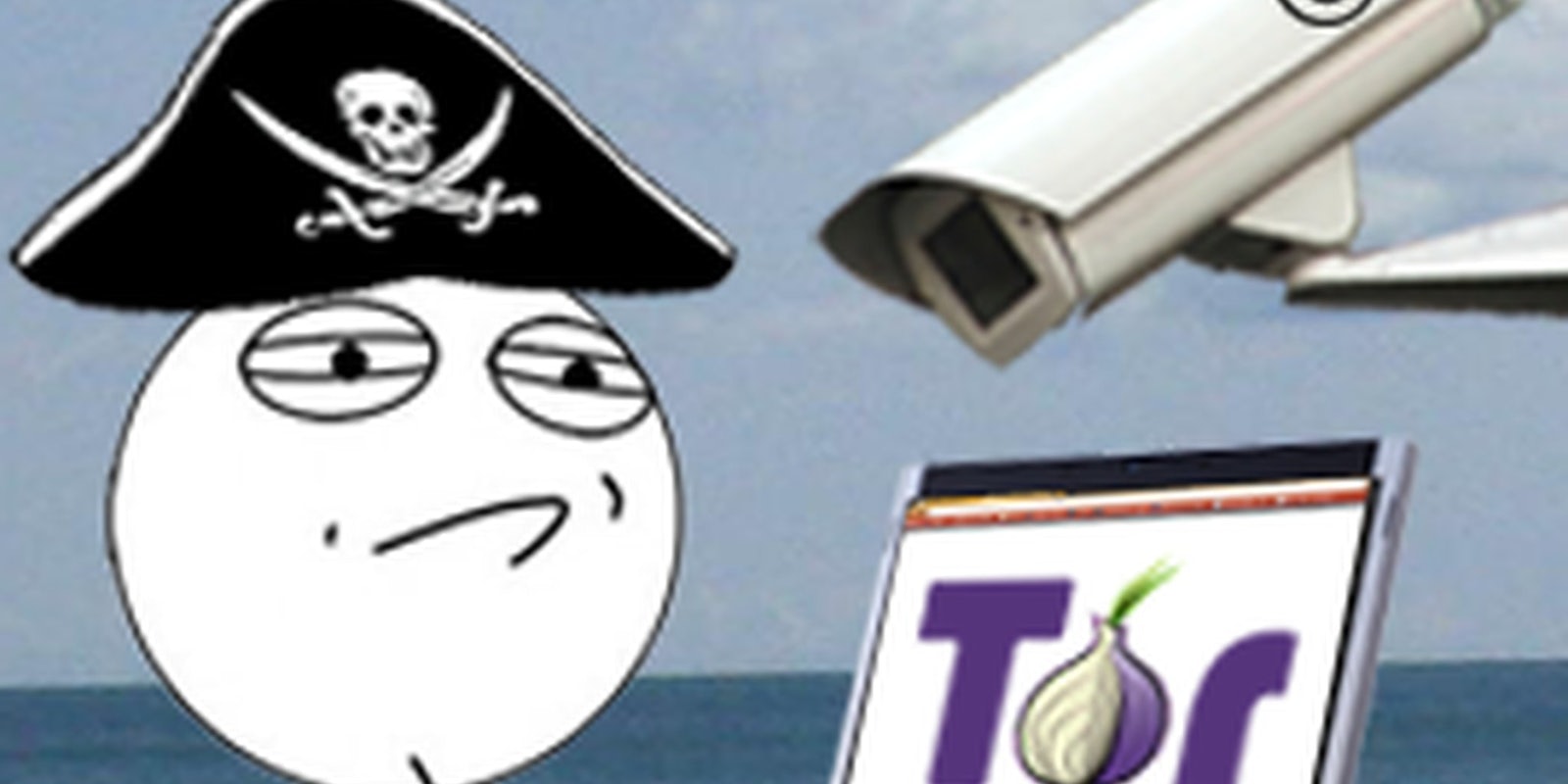A new anti-piracy program is due to launch today for the majority of U.S. Internet users.
A source close to the Copyright Alert System—a preventive measure that would subject American Internet users to “educational” courses if they’re suspected of pirating files—told the Daily Dot it will take effect today for Comcast customers, and hit AT&T, Cablevision, Time Warner and Verizon subscribers later in the week.
But for all the hullabaloo about the CAS, there’s really only one action it flags. The program will try to catch anyone who uploads an established, copyrighted file using peer-to-peer (P2P) file sharing software, such as BitTorrent.
Not anyone who pirates using a file locker service like Megaupload. Not anyone who only downloads from P2P file-sharing services. Not even someone who slightly alters a file, uploads it for a short while on a P2P program, then stops before someone who works for the CAS notices.
Just uploaders.
“If you’re just downloading, you’re fine,” admitted Ron Wheeler, senior vice president of Fox Entertainment, at the INET New York panel on CAS in November.
To be clear, there are plenty of reasons Internet freedom activists are concerned about the CAS. The software that runs the system, MarkMonitor, traces downloaders via their Internet protocol (IP) addresses. But an IP address, as courts keep finding, is only an indication of who’s paying the bills on an account—and absolutely not a guarantee of who’s behind an online action.
The reliance on IP addresses also creates a murky situation for anyone who either shares a wireless connection with neighbors or has their home Wi-Fi network hacked by people nearby. In both of those cases, it’s the paying subscriber, not the actual pirate, who will be held liable. And after you’ve been cited a few times by your ISP, the CAS allows the company to slow your Internet connection down—as “mitigation,” not punishment—which probably isn’t part of the terms of service you thought you agreed to.
Yet in terms of legitimately triggering what the CAS is designed to catch, there’s only one way—being caught uploading—and it’s not too hard to avoid.
“There are ways around [the CAS],” Jill Lesser, the executive director of CAS, admitted at the INET. “There are ways to pirate.”
Downloading copyrighted files is not a black and white issue; one might want to download files they’ve legally purchased but misplaced, for instance. And anyone who can figure out how to use P2P networks can learn to download from them without being flagged by the CAS.
How? Without getting too technical, it’s not hard to set up your P2P program to stop uploading files, or to do your file sharing anonymously by hiding your IP address.
The first option is a serious breach of etiquette amongst file sharers: You simply don’t upload files. You can do this by signing off when you’re done downloading or by turning off uploading altogether in the settings of your file sharing program of choice.
This is a dilemma for the P2P file-sharing community, which relies on users to share files with one another piece by piece, rather than hosting them on central servers. If BitTorrent users stop uploading (“seeding,” in P2P parlance) files, that means less content for hungry downloaders to choose from. And what’s more, a file without enough seeders can download so slowly that even the most hardened pirate might give up and buy it legitimately. For this reason, many private BitTorrent sites require their members to maintain a minimum upload-to-download ratio.
Of course, this plays directly into the anti-piracy goals of the CAS. By spreading the word that uploading just got riskier, the program could slow the supply of copyrighted material that U.S. users provide to sites like The Pirate Bay. (Don’t expect major movies and TV shows to disappear from the Internet, though—releasing juicy pirated files is very much an international pastime.)
The freeloading approach isn’t the only way to protect yourself, though. You can mask your IP address entirely by using a Virtual Private Network, a service that will route all your traffic through its servers, encrypting your data and hiding your identity from the CAS’s monitoring software.
Getting a VPN is a key step for anyone living under an authoritarian regime who needs to protect their speech or access sites that have been blocked by the government (think someone in China who wants to access Twitter). VPNs are also widespread in the business world, where they’re the most common way for employees to securely log into an office network from home.
Which one you use is up to you; there are a number of them available. Many are free, but you can shell out a monthly fee for a premium service if you need faster download speeds or stronger encryption. One VPN will even donate to Internet rights organization Fight For the Future if you pay for a subscription.
Lesser admitted at the INET panel that the CAS, as it currently stands, is helpless against these measures. “For now, that’s not addressed,” she said.
At its heart, she’s long insisted, the CAS is an educational program.
Perhaps its legacy will be that it educated users how to better hide on the Web.
Illustration by Jason Reed


